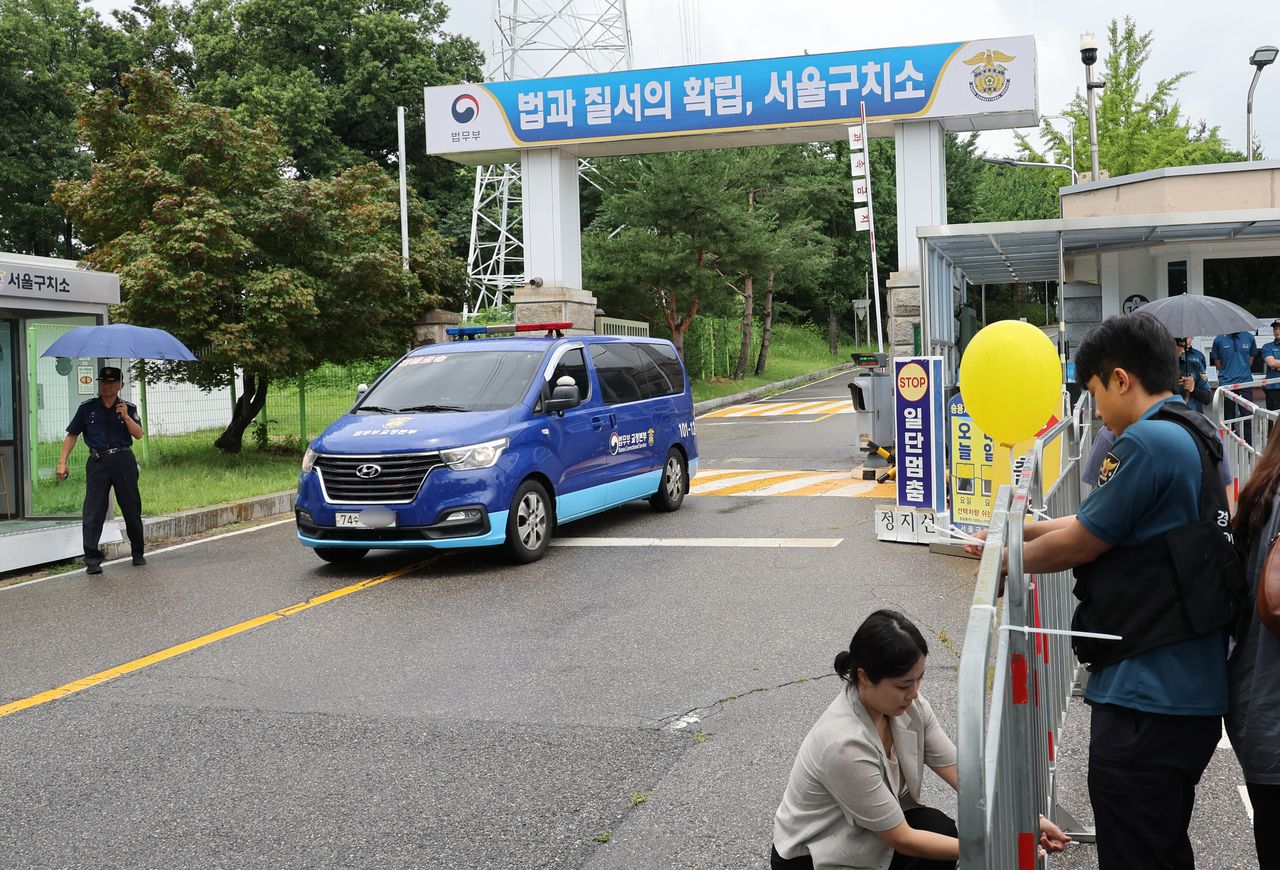 Former President Yoon Suk Yeol remains in custody after a local court issued a warrant for his detention at the request of a special counsel investigating alleged abuse of power and attempts to fabricate a martial law document.
Former President Yoon Suk Yeol remains in custody after a local court issued a warrant for his detention at the request of a special counsel investigating alleged abuse of power and attempts to fabricate a martial law document.
Despite his detention, Yoon has yet to be questioned, with investigators claiming they are unable to compel his cooperation.
The probe, led by special counsel Cho Eun-suk, aimed to interrogate Yoon shortly after his arrest. However, the former president has refused to comply with both voluntary and forced summons, citing health concerns.
The special counsel made another attempt to forcibly summon Yoon, renewing its order for him to appear by 2 p.m. on Wednesday.
Reports suggest they are considering indicting Yoon without questioning him before the initial 10-day detention period ends on Saturday.
Yoon’s legal team argues he is unfit for questioning due to diabetes, eye problems, and stress exacerbated by the summer heat and lack of exercise in confinement. The special counsel disputes this claim, stating that Yoon’s treatment at the Seoul Detention Center is consistent with that of other inmates and that no serious health issues were found during medical checks.
For now, Yoon’s status as a high-profile detainee appears to be shielding him from coercive interrogation – a legal gray area the special counsel has yet to resolve.
The Seoul Detention Center has refrained from using physical force to compel Yoon’s appearance, citing the political and legal sensitivities of handling a former president. However, according to the Justice Ministry on Wednesday, the center has requested personnel support from the special counsel to mobilize prosecutors or investigators to force Yoon’s questioning.
This impasse has slowed the special counsel’s investigation, despite its fast-tracked start in mid-June and initial momentum.
Yoon’s lawyers argue that the investigation should not hinge on summoning him to the special counsel’s office and suggest that questioning could take place at the detention center instead.
“If questioning is necessary, the location is not the issue,” his attorneys said in a statement. “This forced summons approach violates principles of voluntary investigation and is nothing more than an attempt to humiliate the former president.”
The legal representatives emphasized Yoon’s status as the former president rather than as a suspect.
“There have also been past cases where special counsel teams visited detention centers to question former presidents,” Yoon’s attorneys said in a text message to reporters on Tuesday.
Former President Park Geun-hye was questioned through an in-person visit at the Seoul Detention Center in 2017. The special counsel team also made multiple attempts to investigate former President Lee Myung-bak, but the interrogation was not conducted due to his repeated refusal to cooperate.
Although additional questioning was not made, Lee was indicted and detained in 2018.
The special counsel team can dispatch its prosecutors and investigators to the detention center where Yoon is being held. However, legal experts believe this is unlikely as Yoon previously refused to cooperate with the Corruption Investigation Office for High-ranking Officials’ investigation during his first detention period from mid-January to early March.
During a press briefing, Assistant Special Counsel Park Ji-young said, “Yoon and his legal representatives have not submitted any written or verbal statement regarding the investigation to the special counsel. As a result, the special counsel team considers that the suspect is effectively refusing to cooperate with the probe.”
Park explained that while the right to remain silent is protected, refusing to appear for questioning while in custody is not included in the suspect’s rights.
“The suspect, Yoon Suk Yeol, is a former president and a former prosecutor, who should embody the standards of the criminal law and justice system more than anyone. Yet his response is inevitably being presented to the public as an example, setting a precedent,” Park said.
Meanwhile, Yoon’s attorneys have filed an appeal with the Seoul Central District Court to request a review challenging the validity of the arrest and examining whether the detention followed legal and proper procedures.









Most Commented